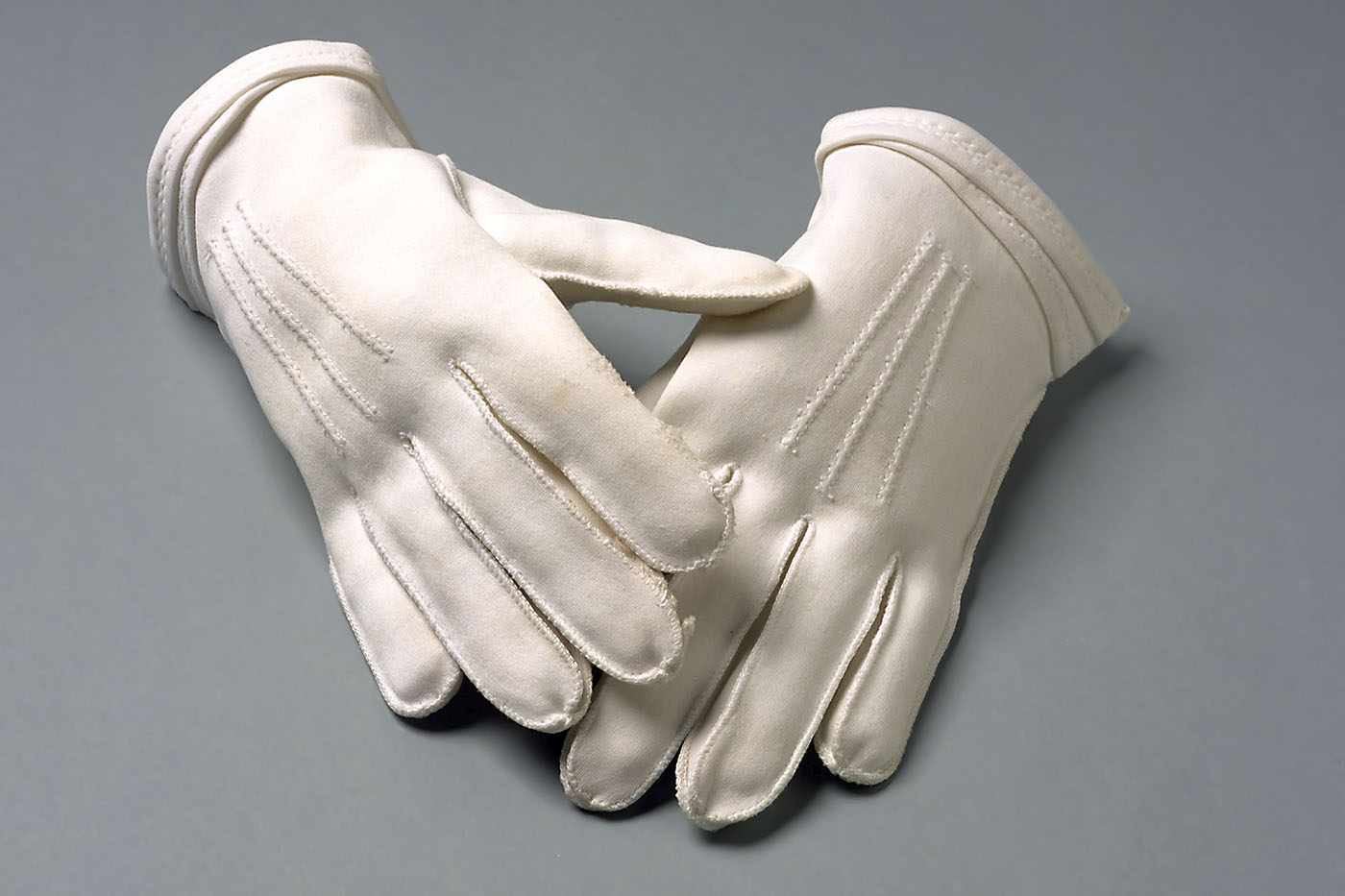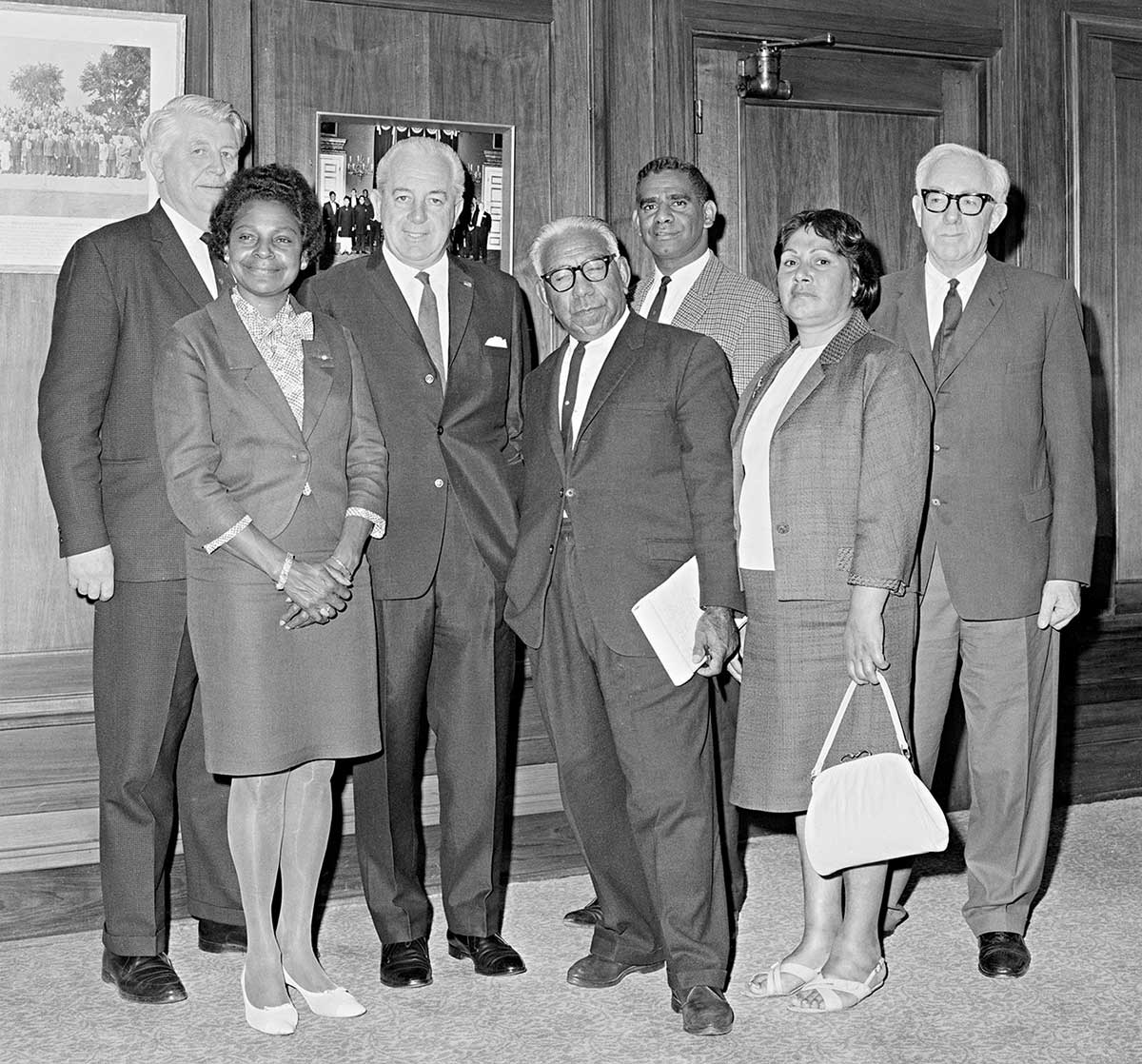Civil rights campaigner Faith Bandler was a high-profile activist during the 1967 referendum. She wore these gloves while lobbying for the recognition of Aboriginal Australians as Australian citizens.
Bandler was one of the leaders of the Federal Council for the Advancement of Aborigines and Torres Strait Islanders (FCAATSI). She spoke at public meetings and rallies, lobbied politicians and was interviewed by journalists.
Bandler understood the importance of connecting with her audience. At the time, white gloves, known as town or day gloves, were representative of the formal dress code that was popular among middle-class white women. By wearing these gloves, Bandler hoped to be taken seriously by her predominantly white female audience.
Faith Bandler:
They were acceptable to the white community I came into contact with when campaigning for black women’s rights.
There were times when I would take as many as three meetings in a day. And I did things that I would never have dreamed of doing: like going into a pulpit, talking to church congregations, and putting up with people whose ideas were totally foreign to me. And all I wanted was their vote.
1967 referendum
The question put to the Australian people on 27 May 1967 read:
Do you approve the proposed law for the alteration of the Constitution entitled – ‘An Act to alter the Constitution so as to omit certain words relating to the People of the Aboriginal Race in any State and so that Aboriginals are to be counted in reckoning the Population’?
Nearly 91 per cent of the electorate voted to amend the constitution. This change meant that Aboriginal people would be counted as part of the population and acknowledged as equal citizens, and that the Commonwealth would be able to make laws on their behalf. This was seen to reflect public recognition of Aboriginal people as full Australian citizens.
Campaigner for change
Faith Bandler was born in 1918 on the north coast of New South Wales. Her father, Peter Mussing, was a South Sea Islander brought to Queensland to work as an unpaid labourer. He was one of more than 60,000 South Sea Islanders who helped to establish the Australian sugar industry.
Peter had been sold as a slave and was forced to work on sugar cane plantations until he escaped in 1897.
Peter eventually settled in Tumbulgum, New South Wales, and married Ida, an Australian born woman of Indian Scottish descent. They had eight children, including Faith, the second youngest.
Faith served in the women’s land army during the Second World War. In 1952 she married Hans Bandler, a Jewish refugee from Vienna.
Bandler was actively involved in the campaign for Indigenous rights in the 1950s and 1960s. She was awarded the Medal of the Order of Australia in 1984 for service to Aboriginal welfare.
In 2009 Bandler was appointed a Companion in the Order of Australia for advancing human rights and social justice, and raising public awareness and understanding of the heritage of South Sea Islanders and women’s issues.
Faith Bandler died in 2015.
In our collection

